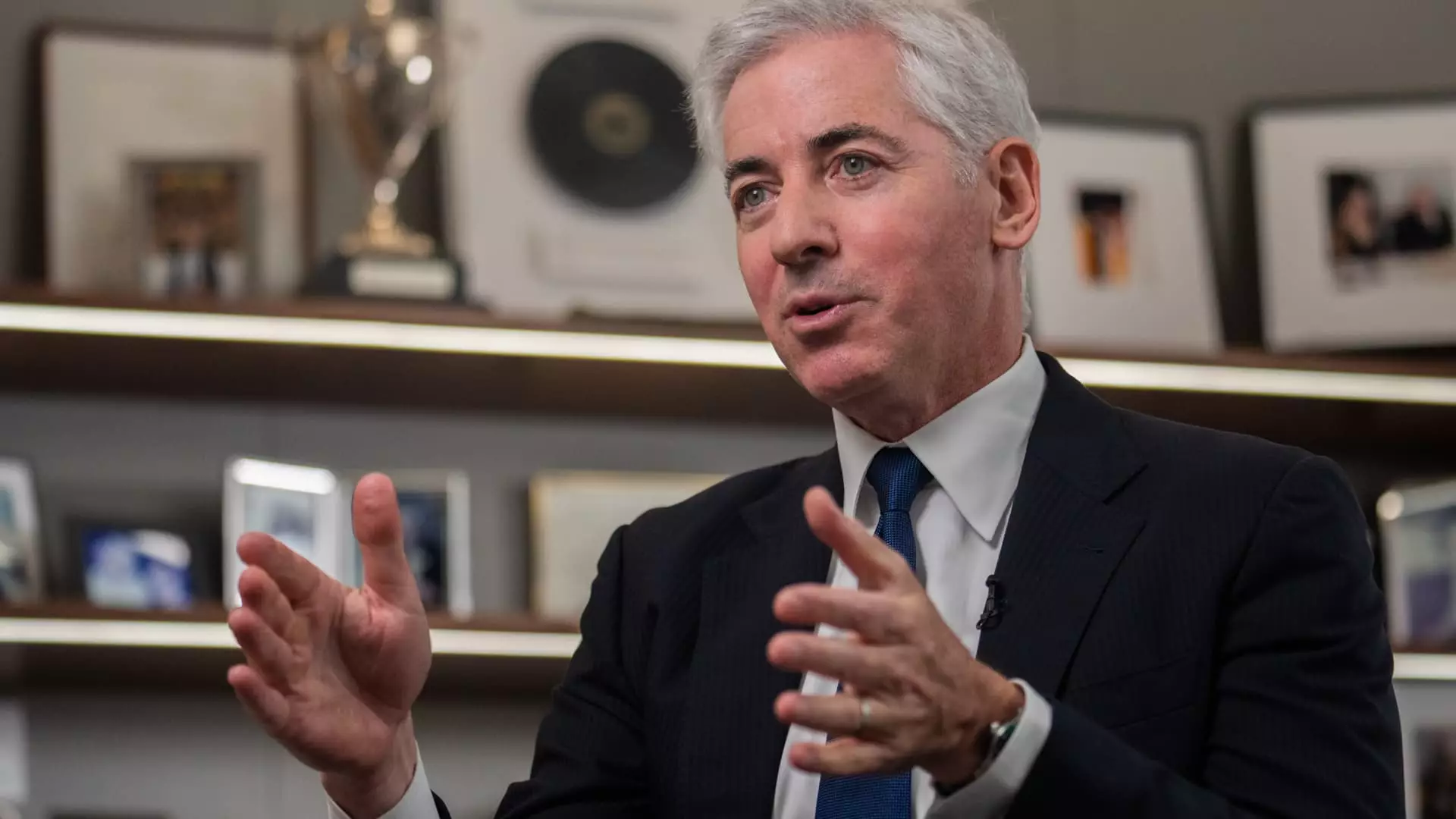Bill Ackman, the influential head of Pershing Square Capital Management, has made a strategic move in the realm of real estate investment, significantly increasing his takeover offer for Howard Hughes Holdings. The billionaire’s latest proposal suggests acquiring 10 million newly issued shares at a premium of $90 per share, a notable jump from his earlier offer of $85 back in January. This ambitious bid is accompanied by Ackman’s vision of establishing a real estate conglomerate reminiscent of Berkshire Hathaway, the legendary investment vehicle led by Warren Buffett.
Ackman’s overarching goal reflects a desire to transform Howard Hughes into a diversified holding company. By securing a 48% ownership stake, he envisions leveraging all the resources of Pershing Square to focus on acquiring controlling stakes in both private and public companies that align with his investment philosophy. The allure of building a “modern-day Berkshire Hathaway” underscores Ackman’s aspiration to simulate Buffett’s success in a new context.
Streamlined Execution Without Regulatory Hurdles
One of the key advantages of Ackman’s newly structured proposal is its efficiency. The revised transaction bypasses the need for regulatory approvals, shareholder votes, or complex financing arrangements. This streamlined approach positions Ackman to complete the acquisition within a few weeks, greatly enhancing the likelihood of success compared to traditional takeover strategies. However, despite the benefits of this rapid execution, the stock of Howard Hughes experienced a drop of nearly 5% in extended trading after the announcement. This reaction may reflect market skepticism about the feasibility of transforming Howard Hughes into a major holding company.
Leadership Transition and Strategic Direction
If the deal comes to fruition, Ackman is poised to assume dual roles as chairman and CEO of Howard Hughes. In his communicated vision, he has emphasized the importance of maintaining the development of “master planned communities” like The Woodlands in Texas and Summerlin in Las Vegas—areas poised to grow into significant urban centers in pro-business climates. Ackman believes that these strategic developments can continue to thrive and prosper, positioning Howard Hughes as a key player in long-term real estate investments.
Furthermore, his approach appears inspired by Buffett’s unconventional journey as an activist investor before taking on Berkshire Hathaway. By highlighting this trajectory, Ackman hints at a similar ambition to utilize a hands-on investment style while cultivating enduring value within Howard Hughes.
Ackman’s increased offer for Howard Hughes Holdings marks a pivotal moment not only for him but also for the landscape of real estate investment. By aspiring to create a vast holding company that mirrors the successes of Berkshire Hathaway, he sets ambitious targets for growth and diversification. While the immediate market response has been tepid, the long-term implications of this strategic bid could redefine Howard Hughes as a formidable competitor in various sectors. As attention turns to the forthcoming developments, investors and industry watchers alike will eagerly await the realization of Ackman’s vision.

